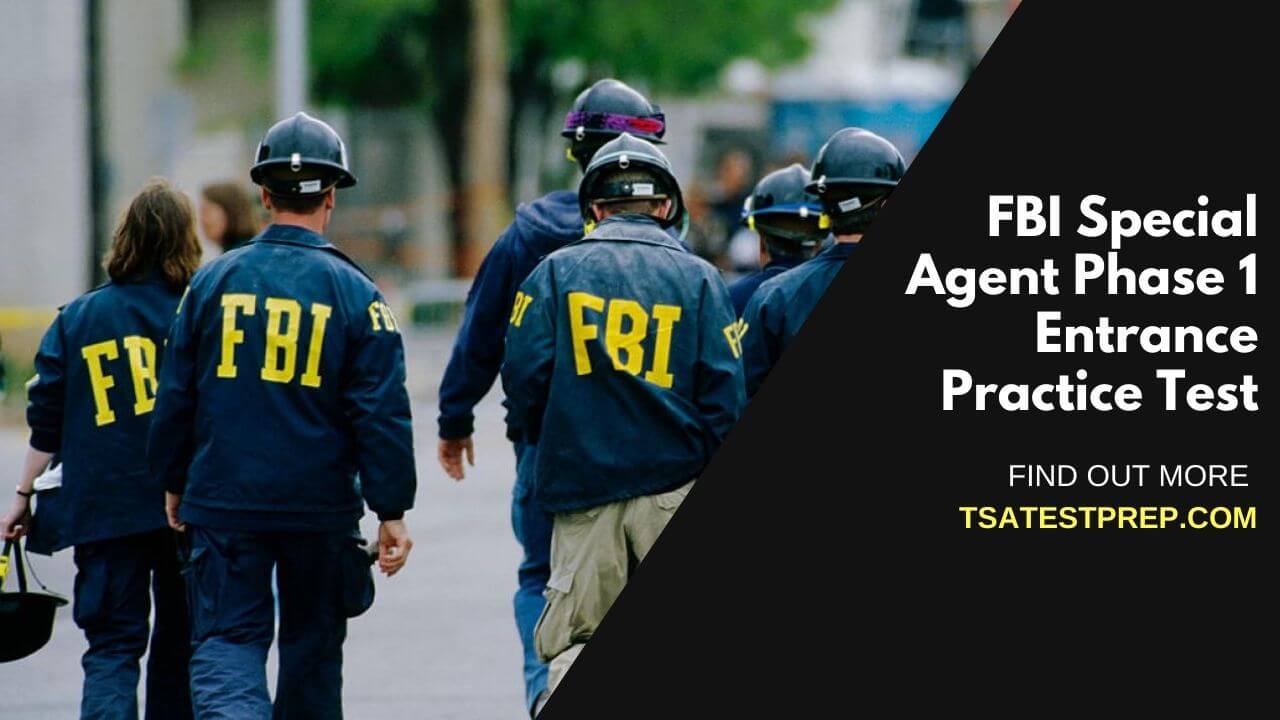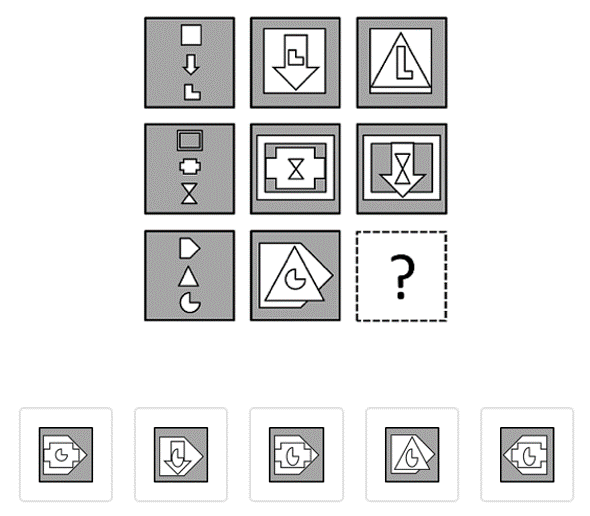
FBI Phase 1 Practice Test
The FBI has a very difficult recruitment process. The first phase after you submit your application is the FBI Phase 1 Test. If you don't excel on this test you will not be able to continue on with the recruitment process. The FBI test only has a 30% passing rate. It is not only important to pass the exam but it is important to score well. Your score will be kept in your file and used to help decide if you are a worthy candidate. Let's make sure you know what to expect on the FBI Special Agent Test and give you some FBI test prep.
Take a Practice FBI Special Agent Test.
What Is the FBI Special Agent Phase 1 Test?
The FBI Special Agent Phase 1 Exam is also referred to as the FBI Special Agent Test. It is a computer-based multiple choice test. It must be completed within three hours and the test has five sections: Logical Reasoning, Figural Reasoning, Personality Assessment, Situational Judgement, and Preference and Interests. Let's break down what is covered in each of these sections.
Logic-Based Reasoning
In this section you will be presented with several short passages and asked to answer questions. Following each passage you will be presented with a set of statements and you must decide which of 5 choices suit the statement the best. The questions test your ability to make decisions, pay attention to details, and use your logical reasoning. This section is the bulk of the test. You will be given 90 minutes to answer 40-50 questions. That averages about 2 minutes per question.
Figural Reasoning
In this section you will be presented with figures and asked to complete a pattern. This section has 9 questions and it tests your visual problem solving and reasoning.
Personality Assessment
In this section you will be given a personality test designed to see if you have the character traits needed to excel on the job. You will face a 100 statements and you will indicate your feelings toward them.
Situational Judgement
In this section your on the job judgement will be tested. The FBI is looking to see how you can change to environments, make decisions, organize and prioritize. You will be given problematic scenarios and asked what action you might take next. You will then be asked to rate the effectiveness of the response from most to least effective. There are 19 questions in this portion of the test.
Preference and Interests
In this section the FBI is looking to gather information about your personal preferences on a variety of topics. An FBI special agent has to be well rounded and this portion allows the agency to see a glimpse of who you are. This section has 37 questions.
Start praciticing for the FBI Phase 1 test with solving tips.
How Can You Prepare for the FBI Test?
Gathering information is half the battle, so congrats on doing that. That being said, for this test specifically it is important to not only pass but to get a high score. We recommend using an FBI practice test. We like this FBI study guide and test prep because it includes a full length test so you can feel what it is like to sit for the full three hours. It also breaks up practice for the individual sections so you can get more practice where you feel necessary.
Free FBI Test Questions
FBI Test Logical Reasoning Sample Question
An eyewitness is defined as an individual who testifies about his or her knowledge of a crime as understood through their five senses. Juries place high importance on eyewitness accounts and usually don't take into account false memories. Once a person identifies a person in a lineup they are increasingly likely to identify the same person in a second lineup even if they are NOT the perpetrator. In a recent complex murder case, Jane Wonder acted as an eyewitness in a number of line-ups. Due to the false memory effect most of her attempts at identifying the perpetrator have been wrong.
From the information given above, it is valid to make which of the following conclusions:
- When an eyewitness identifies a perpetrator in a line-up, he has a higher probability of being incorrect.
- At least one of Jane Wonder's attempts to identify the perp is likely to turn out to be false.
- If a witness' testimony is not based on his senses (e.g. seeing, hearing, smelling, touching), he is not considered to be eyewitness.
- If an eyewitness fails to identify the perp, it can be assumed that, most likely, they have partaken in more than one line-up.
- There are some witnesses in a case, aside from eyewitnesses, who do not rely on their senses.
Answer
The correct answer is (C).
According to the passage, an eyewitness is defined as a person who testifies about his/her knowledge of a crime as perceived through his or her senses. Answer (C) is considered a negative equivalent of this statement. If someone is not testifying based on knowledge from his/her senses then he/she is NOT an eyewitness.
Free Figural Reasoning Sample Question
Which choice completes the pattern best?

Answer

We need to focus on how the pattern is repeated. Let's use the process of elimination to find the best answer. We can immediately eliminate choice 5 because the pentagon in the background has been flipped and is different from the center frame. Then can eliminate choice 1 because the pie shape is not elongated. Then we can eliminate choice 2 and 4 because they do not have a center shape that is similar to the center shape of the left frame of the previous row. So we are left with choice 3 as our answer.
FBI Situational Judgment Sample Question
After going over a technical report that a coworker has prepared, you think that some changes should be made. When going over the changes with your coworker they believe that the original version was better and the changes are not needed.
From the information given above, it is valid to make which of the following conclusions:
- When an eyewitness identifies a perpetrator in a line-up, he has a higher probability of being incorrect.
- At least one of Jane Wonder's attempts to identify the perp is likely to turn out to be false.
- If a witness' testimony is not based on his senses (e.g. seeing, hearing, smelling, touching), he is not considered to be eyewitness.
- If an eyewitness fails to identify the perp, it can be assumed that, most likely, they have partaken in more than one line-up.
- There are some witnesses in a case, aside from eyewitnesses, who do not rely on their senses.
Answer
Response D is the only option where the two parties engage in an actual discussion. This shows respect for the opinion of both parties involved. This response shows both decision making and flexibility.
FBI Personality Test Sample Questions
1. Sometimes it is hard to make a decision
| strongly agree | 2 | 3 | 4 | 5 | 6 | 7 | strongly disagree |
2. I like to do things which might be considered "breaking" the rules
| strongly agree | 2 | 3 | 4 | 5 | 6 | 7 | strongly disagree |
3. I usually keep my feelings to myself
- Agree
- Neither Agree or Disagree
- Disagree
Get more FBI Test Prep.

Have a Question? Now You Can Ask TSA Test Prep!